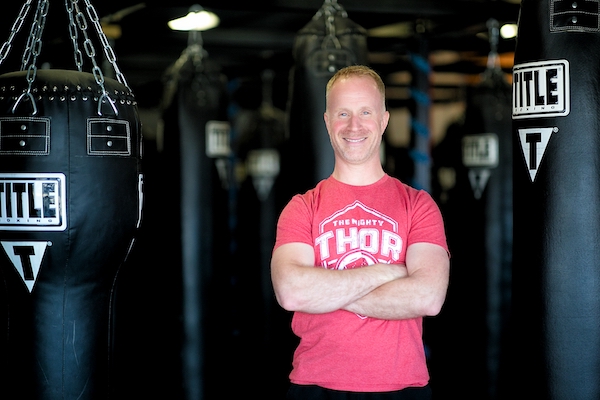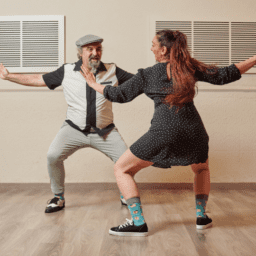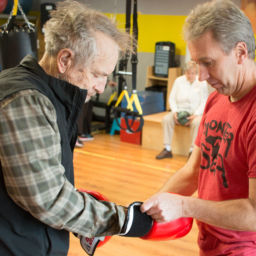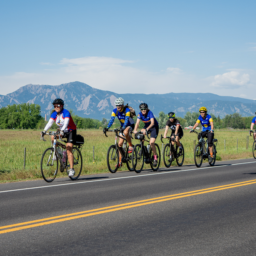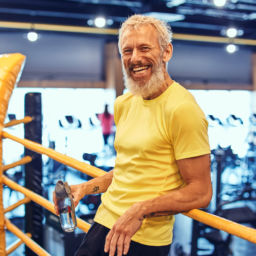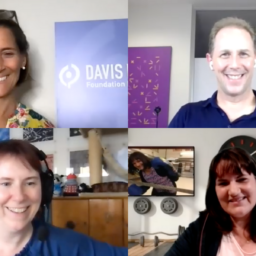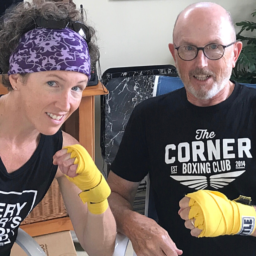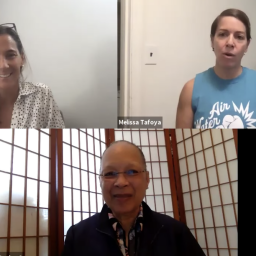What was it like when your father was diagnosed with Parkinson’s?
My dad was originally diagnosed with Alzheimer’s. He was visiting us in Spokane, Washington while I was in the Air Force. I was 32 and he was 63. We tried to play a word game earlier that day and he kept answering “Art Linkletter” for every answer. He said he couldn’t think of anything else. My dad had a sharp and wildly creative mind so we knew something was wrong. We were all sitting down at dinner when he got up the nerve to say, “I have Alzheimer’s.” It was a shock, to say the least.
Looking back at some of the pictures from that day, I can see my dad’s facial masking as clear as day. I remember his left hand wasn’t moving normally and he was having trouble moving around the house. These weren’t classic symptoms of Alzheimer’s, but we trusted the doctor’s diagnosis.
After that, we tried to rally around my dad and mom. We all got smart on Alzheimer’s and started trying to figure out what was going to happen next. However, after a few years, he and his doctors noticed that the meds weren’t doing anything. That’s when they came to the conclusion that he had Parkinson’s.
My dad tried to stay active at home… sort of. My mom made him keep score in Yahtzee every night. He walked the dog every day and played golf. They went on vacations and kept going on with their lives. But, he wasn’t nearly as active as he needed to be and things continued to get worse. He frequently got very confused, his voice got quieter and he was less able to move around – “sticky feet”. It felt like my dad was fading away. He had always been so funny, quick-witted and on the move. Now, he couldn’t find his words and he struggled to move.
The doctors in rural South Carolina told him that exercise was just too risky. They told him to slow down and be careful. They didn’t want him to fall. He would try to get up and move but, wanting to follow doctor’s orders, my mom would fuss at him and get him to sit back down. They didn’t know any better.
My dad’s Parkinson’s was difficult on their marriage. My mom didn’t know what to expect and she was his sole caretaker. The changes were so subtle and insidious that it was hard to differentiate my dad from the Parkinson’s. These years were supposed to be relaxing and easy. They never bargained for this.
One day, my dad fell in the shower and my mom couldn’t get him up. They had to call an ambulance. After that, he never went back home. We weren’t ready for all of this. He went to Assisted Living, then to Rehab and then to Hospice. It was a downward spiral and it seemed like there was nothing we could do.
As soon as he came in the door of that facility, they put him in a wheelchair. They even attached an alarm to the back of his shirt and the wheelchair so that it would go off if he ever tried to stand up! They would just roll him around the facility from the TV room, to meals, to his bed. He was wheelchair-bound and that’s how he died.
It was heartbreaking. Ignorance and fear killed my father. They never gave him a chance to fight back. Everyone just thought that this is what happened to people with Parkinson’s. Now I know that it doesn’t have to be that way.
As a result of that experience, how do you choose to live well each day?
I got into personal training because I’ve struggled with depression for quite some time. It became worse when I got out of the military and we started a family. When I finally got help, the first thing my psychiatrist asked me was, “Are you still exercising?” No. Too much to do. No time.
“You need to get back into the gym immediately”, he said.
So, I did. I had to force myself to do it, but I did. Since then, exercise has been a huge part of my therapy. I exercise every day. I don’t always want to, but I know I will feel better if I do. Well, I know I will feel worse if I don’t.
When I had the opportunity, I became a personal trainer and founded Black Dog Fitness to help other people with depression learn out how to use exercise to help themselves. I wanted to help others find their confidence and work fitness into their lives.
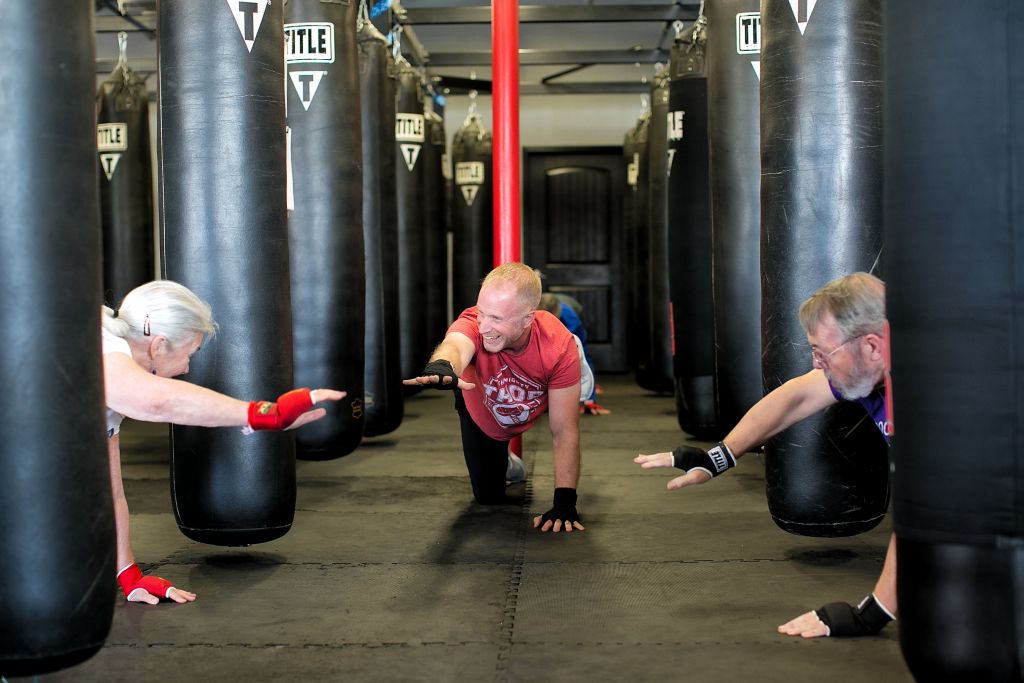
In 2015, I saw the CBS Sunday Morning piece on Rock Steady Boxing. I was on their website signing up for the Coach Certification before the show was even over. This program fit me perfectly. Exercise and community to FIGHT BACK AGAINST PARKINSON’S so that no one else has to go through what my dad did? I was in.
Now, I coach Rock Steady Boxing at two locations in Knoxville, I post videos online for The Parkinson’s Gym and I train my clients to help them live better with fitness. Everyone exercises for his or her own reason – depression, confidence, stress, Parkinson’s. I want my clients and fighters to enjoy and look forward to their workouts. It isn’t a punishment. It isn’t a necessary evil. Exercise is therapy. It’s an investment. This is the only body we get. We might as well do the best we can for it.
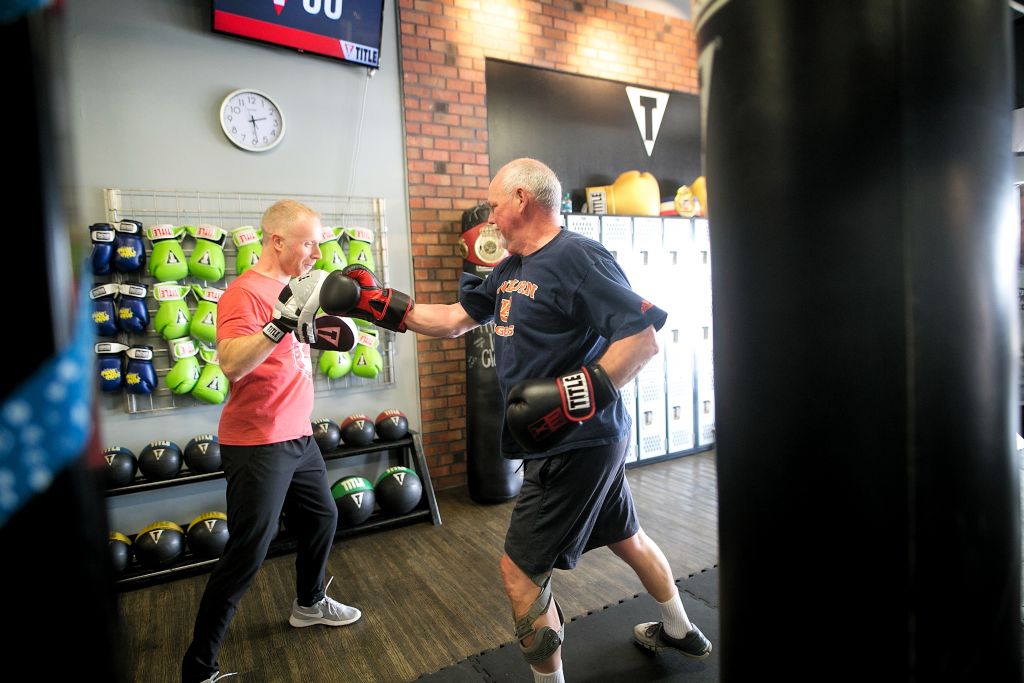
What do you wish your dad had known when he was diagnosed that you are sure of now as someone who works with people living with Parkinson’s?
Here are the five actions I wish my dad had known to take that I now recommend to my clients:
#1 FIGHT!
Parkinson’s is not a “take your meds and carry on” kind of illness. You have to ATTACK it on every front – exercise, nutrition, lifestyle, daily living, socially. Parkinson’s doesn’t fight fair. You never know what’s coming so you have to take pre-emptive action.
#2 Exercise HARD
Get to Rock Steady Boxing or some other reliable, continuous, Parkinson’s specific exercise program that works you hard. Exercise is critical to countering the effects of Parkinson’s on your body and slowing the progress of Parkinson’s in your brain. I started The Parkinson’s Gym so that anyone with a computer can have access to Parkinson’s specific exercise anywhere and anytime.
No matter how far along you are, no matter what condition you are in, exercise works to fight Parkinson’s! Exercise is stress that causes your body and brain to change and adapt. It has to get stronger. It has to find new ways to deal with stress. This isn’t to say that every workout needs to be a suffer-fest, but it must work your body harder than your daily life does. There is no drug that can do what exercise does.
#3 Get a team
Find people in the area and online who can help you face Parkinson’s head-on. Family, doctors, physical therapists, friends, trainers, support groups can all help you live well with Parkinson’s. Parkinson’s isn’t something you can ignore so you might as well gather up a posse and kick it in the teeth.
#4 Get help at home
Your spouse or partner can’t do it all and you don’t really want them to. Become a master at asking for and accepting help. Many people are afraid to ask for help because they don’t want to be a burden to others. The truth is people want to help. Give them the chance to help you and your spouse or partner if you have one. You both will be happier if you do.
#5 Be your own advocate
Everyone with Parkinson’s has a unique combination of symptoms. There is no standard course of treatment or predictable progression of the disease. Doctors are just people doing their best with what they know about you and Parkinson’s.
My Dad’s doctors didn’t see very many patients with Parkinson’s. All they knew to do was give him medication and keep him from falling. If that’s what you experience with your doctor, go shopping for a new one.
Find a doctor you trust and work well with because this is one of the most important decisions you’ll make during your journey with Parkinson’s. This may very well be the fight of your life and your doctor (and everyone on your team) is your partner.
Each person on your care team has a piece of the puzzle, but you are the only one who can see the whole picture. No one knows your Parkinson’s better than you. Go into your appointments prepared with explanations of what you’re experiencing and understand what they prescribe so you can participate and contribute to the decisions. Ask questions and get answers. Get in the fight!
ZACH GUZA’S PHILOSOPHY
What do you wish everyone living with Parkinson’s knew about living well?
Parkinson’s is hard. There’s no doubt about it. There’s no known cause and no known cure. You didn’t do anything to deserve this. It just happened.
But, it’s not a death sentence. You can fight to keep your body and brain healthy. You can still live a happy life. You may have to do things you never thought you would do like box, attend support group meetings, do burpees, carry a cane, take a pill every three hours, get brain surgery, take spin classes, dance. But do it. Do it for you. Do it for your family. And do it every day that you can.
Zach Guza is a Rock Steady Boxing Coach, Certified Personal Trainer and Functional Aging Expert in Knoxville, Tennessee. Zach founded TheParkinsonsGym.com, an online exercise program exclusively for people fighting Parkinson’s. Weekly workouts and articles along with a members-only Facebook page help keep people with Parkinson’s moving, informed and motivated.
SHARE YOUR VICTORY
Each month, we spotlight people from our Parkinson’s community who embody living well today – what we call Moments of Victory®
Your story, like Zach’s, could be featured on our blog and Facebook page so others can learn from your experiences and victories.


